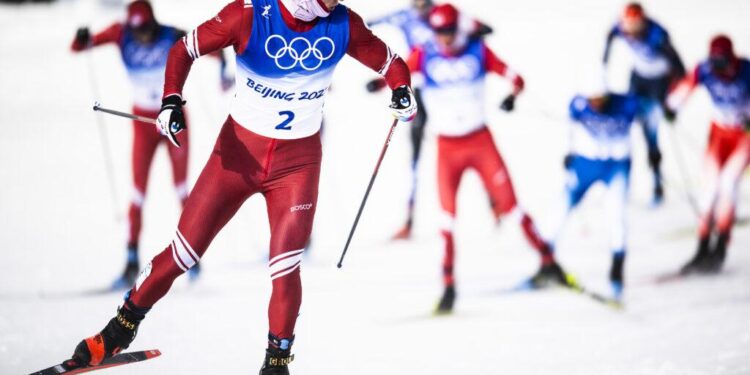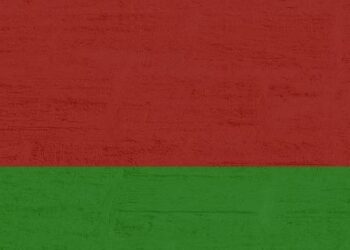In a decisive move reflecting ongoing geopolitical tensions, the International Ski Federation (FIS) has announced that athletes from Russia and Belarus will be barred from participating in upcoming Olympic qualifiers. The decision, reported by ESPN, underscores the continued impact of the conflict in Eastern Europe on the world of international sports, as governing bodies strive to balance fair competition with broader ethical considerations. This exclusion marks a significant setback for the affected athletes and raises questions about the future landscape of winter sports competitions leading up to the Olympics.
FIS Decision Bars Russia and Belarus from Olympic Qualifiers Impact on Athletes and International Competition Strategies
The International Ski Federation’s decision to bar athletes from Russia and Belarus from participating in Olympic qualifiers has sent ripples through the winter sports community. This unprecedented move not only impacts the career trajectories of numerous elite competitors but also forces national teams and coaches worldwide to recalibrate their strategies. Russian and Belarusian athletes, often considered strong contenders, will see their chances of Olympic qualification vanish, which may alter the competitive landscape significantly. For the affected athletes, the ban represents both a professional setback and a profound emotional challenge, stripping them of key opportunities for international recognition and competition experience.
In response, other nations are rethinking their approach to the qualifiers and overall preparation for the Olympic Games. Without the usual Russian and Belarusian presence, qualification events may see shifts in qualification thresholds and podium predictions. Key implications include:
- Revised competitive dynamics: Increased opportunities for athletes from traditionally less dominant countries.
- Strategic reallocation: Coaches focusing resources on emerging talent to capitalize on the new field.
- Potential geopolitical reverberations: Sports diplomacy and relations within international federations may be tested.
| Aspect | Before Ban | After Ban |
|---|---|---|
| Number of Russian/Belarusian Qualifiers | High (estimated 15-20) | 0 |
| Medal Contention Shift | Strong Favor | Open Field |
| Qualification Difficulty | Increased | Moderate |
Reactions from National Federations and Potential Shifts in Qualification Dynamics
National federations across Europe and North America have voiced a mixture of support and concern in response to the FIS decision to exclude Russia and Belarus from the Olympic qualifiers. Leading winter sports powers such as Germany, Canada, and Norway praised the move as a necessary stance for upholding the integrity of the Olympic spirit, emphasizing the need for a fair and peaceful competition environment. On the other hand, some federations expressed apprehension about potential political repercussions and the precedent this sets, urging the FIS to maintain transparency in its qualifying criteria going forward.
This exclusion introduces notable shifts in the qualification landscape, potentially opening the door for emerging nations to make their mark on the Olympic stage. Analysts predict increased competition among European mid-tier countries as they vie for qualifications that would have otherwise been dominated by Russian and Belarusian athletes. The altered dynamics may also affect team strategies and funding allocations in the lead-up to the Games, as federations recalibrate their expectations and goals in this unprecedented scenario.
| Country | Reaction | Potential Impact |
|---|---|---|
| Germany | Supportive | Higher medal chances |
| Canada | Supportive | Greater team depth opportunity |
| Belarus | Excluded | Disqualified from qualifiers |
| Norway | Cautiously optimistic | Strategic recalibration likely |
| Italy | Concerned | Calls for transparent criteria |
- Enhanced competitive balance: Mid-tier nations stand to gain from new entry opportunities.
- Funding shifts: National programs might redirect resources to capitalize on openings.
- Political ramifications: Potential diplomatic tensions could influence sport governance.
Recommendations for Governing Bodies to Ensure Fair Play and Maintain Global Sporting Integrity
To uphold the principles of fair competition and maintain the integrity of international sport, governing bodies must adopt clear and transparent policies when addressing geopolitical conflicts. Implementing stringent eligibility criteria ensures that all participants compete on equal footing, free from the influence of external political pressures. Additionally, establishing an independent review panel to assess eligibility disputes can foster trust among stakeholders and provide objective rulings that resist politicization. These measures reinforce the credibility of the qualifiers, assuring fans, athletes, and sponsors that decisions prioritize the spirit of the sport above all else.
Furthermore, consistent communication and collaboration with global sport organizations enable cohesive enforcement of sanctions and participation bans. Governing bodies should provide comprehensive guidelines while offering alternative pathways for affected athletes who meet compliance standards, maintaining opportunities for individual talent without compromising global unity. The following table outlines key recommendations for governance practices in sensitive international contexts:
| Recommendation | Purpose | Impact |
|---|---|---|
| Transparent Eligibility Criteria | Ensure fairness and clarity | Builds athlete and public trust |
| Independent Review Panels | Objective dispute resolution | Reduces politicization of decisions |
| Global Coordination | Unified policy enforcement | Prevents loopholes and inconsistencies |
| Alternative Athlete Pathways | Support compliant individuals | Preserves opportunities amid sanctions |
Concluding Remarks
The FIS decision to exclude Russia and Belarus from Olympic qualifiers marks a significant development in the ongoing response to geopolitical tensions impacting international sports. As the situation continues to evolve, the move underscores the broader implications for athletes and competitions worldwide. Stakeholders and fans alike will be closely monitoring how this ruling shapes the path to the upcoming Winter Olympics.
















